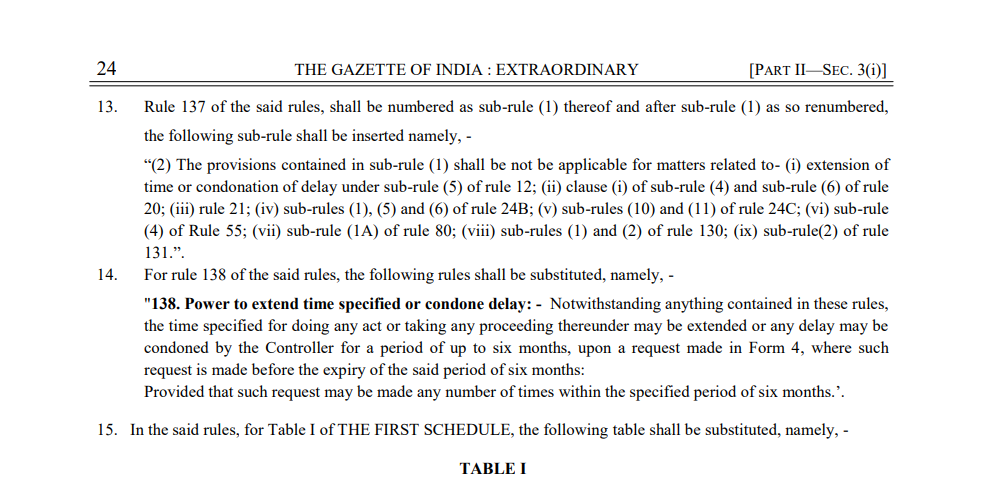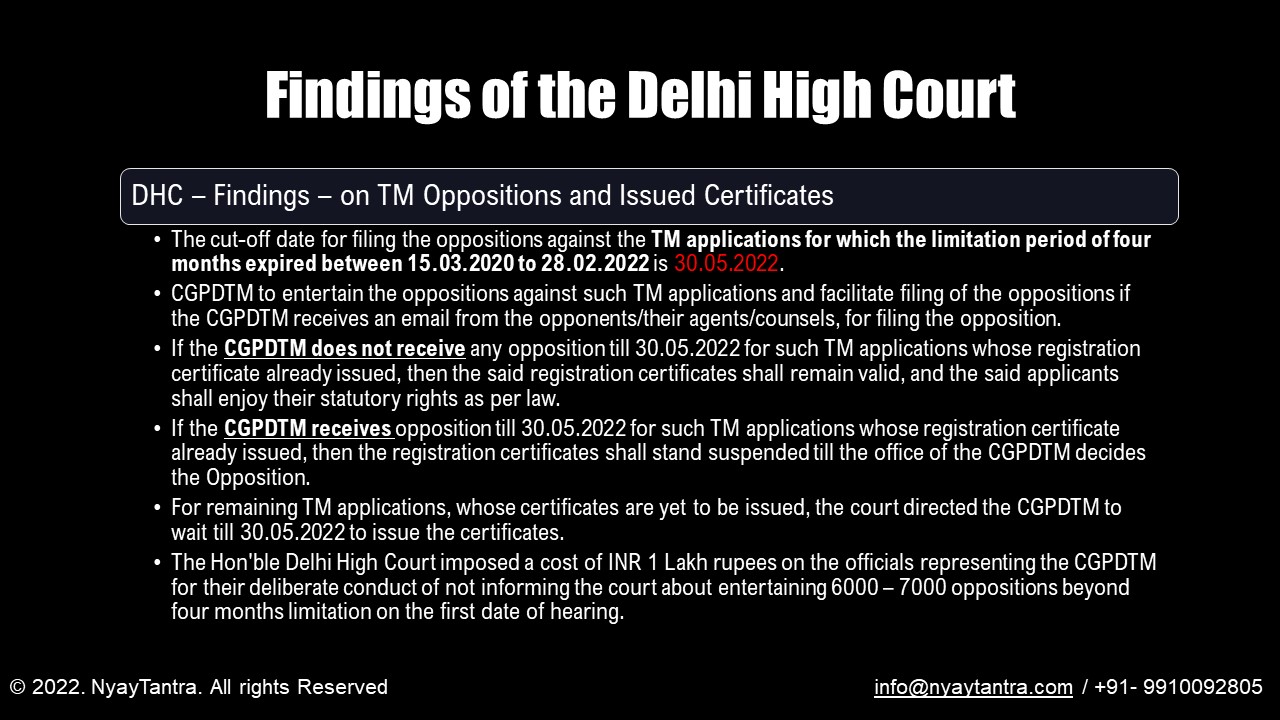Welcome to this edition of our newsletter!
In the final segment of our series, we will discuss the transformative amendments introduced by The Patents (Amendment) Rules, 2024. These changes significantly relieve patent applicants, patentees, business owners, decision-makers, patent agents, and attorneys while handling tight timelines.
From Missed Deadlines to Game-Changing Rules
The Indian Patent Act, 2005, and the rules made thereunder had specific sacrosanct timelines, such as a one-year deadline to file the complete specification, a 31-month deadline to enter India through the national phase route, a 31-month deadline to file the request for examination, and a 6-month deadline to file a response to the first examination report (FER).
Missing these deadlines led to the patent application’s automatic abandonment. The outcome is highly uncertain even if the patent applicant invokes the High Court’s extraordinary writ jurisdiction to revive the abandoned patent application.
Then what is the game changer ?
The new rules introduce a life-saving provision allowing applicants to seek extensions even after deadlines expire.
Let’s break down these new life savings amendments to understand under which rule the patent applicant can seek an extension of time for almost every deadline while prosecuting the patent application in India.
Amendments in Rule 137
Earlier, Patent Applicants frequently used Rule 137 to rectify irregularities in procedure during the prosecution of the patent application. However, various exceptions are introduced in the new Rule 137 to explicitly disclose that the patent applicants can no longer invoke Rule 137 for the following irregularities:
- Delay in Disclosure of Foreign Filings: The patent applicant cannot invoke Rule 137 to condone further delay after availing of the 3-month extension period in filing Form 3.
- National Phase Filing Delay: Rule 137 cannot be invoked to seek an extension in filing the national phase application in India after the expiry of 31 Months.
- Rule 137 cannot be invoked to file a translation of Amended Claims, and Annexures filed during the PCT International Phase after the expiry of the time specified by the Controller to submit the said documents.
- The patent applicant cannot rely on Rule 137 to file priority documents in the PCT National Phase Applications if these were not filed during the international phase of the PCT application.
- Rule 137 cannot be invoked to claim an extension of time to file a Request for examination and a response to the first examination report after the expiry of 31 months and six months, respectively. The Patent applicant cannot rely on Rule 137 to seek time after the expiry of the additional 3-month period in filing the FER response.
- Opposition Proceedings: During an opposition proceeding, the patent applicant cannot invoke rule 137 to rectify irregularities in filing the Statement and Evidence in response to the representation in pre-grant Opposition beyond the expiry of two months.
- Rule 137 cannot be revoked for addressing the irregularities corresponding to the timelines while paying the renewal fee, filing a review petition against the Controller’s decision and filing the statement of working of patents in India.
At first glance, this might seem restrictive. Since almost everything that earlier appeared to be covered under Rule 137 has been removed, how come these new rules would be game-changers for patent applicants? But the silver lining lies in Rule 138, which fundamentally redefines extensions.
Amendments in Rule 138
Let us go through the newly substituted Rule 138.
“138. Power to extend time specified or condone delay: – Notwithstanding anything contained in these rules, the time specified for doing any act or taking any proceeding thereunder may be extended or any delay may be condoned by the Controller for a period of up to six months, upon a request made in Form 4, where such request is made before the expiry of the said period of six months:
Provided that such request may be made any number of times within the specified period of six months.”
The newly substituted Rule 138 starts with the NON-OBSTANTE CLAUSE “Notwithstanding anything contained in these rules,” which gives the affected person an unquestionable right to request an extension or condonation of delay for up to six months for any time associated with any proceeding or act disclosed in the patent rules. The Critical point of consideration is that the patent applicant must file such a request before the expiry of six months from the deadline date.
As an illustration, If the 31-month request for examination deadline falls on 02-January-2025 for a particular patent application, then the applicant can still file the request for examination on or before 02-July-2025, providing the patent applicant invoke Rule 138 by filing Form 4 along with the prescribed extension fee. The revised schedule introduced in the Rules 2024 discloses that a corporate entity can avail of the extension of time under Rule 138 at approximately Rs 50,000 per month (i.e., USD 600 per month). This provision may appear costly, but it’s a small price to preserve critical patent rights.
We’ve explained the various amendments introduced through The Patents (Amendment) Rules 2024 in greater detail on our YouTube channel. You can check it out to understand how these changes impact your patent prosecution strategies.
We’d love to hear your views on these life-saving amendments, particularly Rule 138. Your feedback and shared experiences will help us refine our approach to patent prosecution in India.
Thank you for your continued support and encouragement for these newsletters!
Connect with a Legal Professional
Have questions about legal matters? Book a Brief Consultation with our Advocate to receive clear, professional guidance tailored to your specific concerns. Let us assist you in navigating your Legal challenges with confidence.
Disclaimer: In compliance with the Bar Council of India guidelines, this article is intended for informational purposes only and does not constitute legal advice or a
solicitation for legal services.


